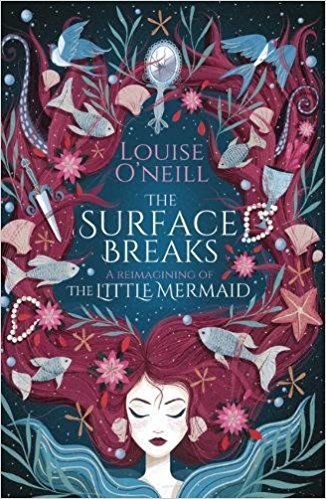 I had high expectations for The Surface Breaks because I think O’Neill is an amazing and very skilled writer. She did not let me down. This book is different from her others, as it’s a reimagining of the fairy tale The Little Mermaid.
I had high expectations for The Surface Breaks because I think O’Neill is an amazing and very skilled writer. She did not let me down. This book is different from her others, as it’s a reimagining of the fairy tale The Little Mermaid.
Now, I have to start by saying I don’t know my fairy tales at all. I don’t think I ever saw Disney’s The Little Mermaid, either. So I don’t know how much of the book comes from the original tale and how much is new from O’Neill. The little mermaid herself, Muirgen (or Gaia, as she prefers to be called), is the youngest of several daughters of the Sea King. He is a bit of a tyrant even though she and her sisters don’t see it that way. They accept all the expectations and limitations placed on them. They are to look pretty, be agreeable, and nothing more. The girls’ mother disappeared on Gaia’s first birthday. Everyone believed the Sea King’s story about her getting trapped in a human’s fish net. Gaia grows up romanticizing the idea of her mother and looking forward to the time when she too can go to the surface and see what’s up there. The book opens right before her fifteenth birthday—the year she’s allowed to swim to the surface.
When she does go, she happens upon a shipwreck and saves one of the humans—a beautiful man she’d admired all day, long before the storm that broke up the boat rolled in. This is a grave sin that would get her in big trouble with the Sea King.
Gaia has the misfortune of being the prettiest of the sisters, so she’s been betrothed to a much older mer-man who’s one of her father’s good friends. He’s pushy and horrible and soon after the book opens, he starts coming to her bedroom at night and taking what he wants. The first time is such a great example of O’Neill’s evocative writing that I have to share it. Just after gripping her by the waist and threatening to tell the Sea King about her misdeed at the shipwreck—of course he’d followed her, he’s a big creep:
He tightens his grip and claims my lips with his, his cold tongue invading my mouth like a greasy sea slug.
I mean, seriously—a sea slug. That’s such and awesomely perfect description, and so, so gross.
Gaia spends her time mooning over the man she rescued, Oliver. She visits the area where she took him and hopes to see him again. She imagines herself in love. So when Zale makes it clear that once they’re bonded he will prevent her from making trips to the surface, she starts to panic a little and eventually comes up with an escape plan. She’ll visit the Sea Witch and see what can be done.
The Sea Witch makes Gaia a gruesome offer: she has to give up something of herself that’s very valuable, will get legs that will be agonizingly painful, and has only a month to make Oliver fall in love with her, or she’ll die. She accepts.
That’s when the real adventure starts. That’s also when the dread sets in. I find that dread is a significant feature of O’Neill’s books, because you know things aren’t going to go the way the characters (and readers) want. It makes the books hard to put down, and that was definitely the case here for me. Once she got to the surface, I finished the book in two nights, staying up way too late the second night. Because even though the setup is great, the story with the humans is so good. This is when Gaia’s latent feminism wakes up, even if it’s quiet.
The book is full of wisdom and an awareness of the utter lack of fairness in the world for girls and women. Gaia watches men at a party:
They estimate the beauty of each passing girl, weighing it up with their friends. Listing pros and cons as if it is their decision to make, that the girls’ beauty will be determined by their opinions rather than objective fact, because they are men and a man’s word is final.
It’s brilliant and beautiful, too. After the party,
The evening plummets into night, the moon rowing across the ocean’s skin.
I just love it. And then there’s the ending—just, wow. I really didn’t know where it would end up (I was dreading it, after all) and it totally surprised me in a very good way.
If you consider yourself a feminist or even if you don’t but you’ve just noticed how rough things are for girls, you should check this one out. It was seriously great. A genuinely entertaining story loaded with so much more.

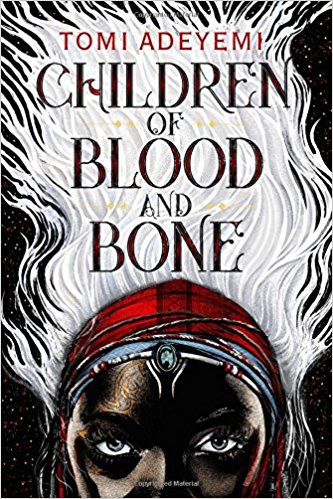 There’s a lot of hype surrounding this book (for instance, I saw Entertainment Weekly called Adeyemi the next J. K. Rowling). Hype can be both good and bad. It had a lot to live up to, but I was still excited to read it, even though it’s way longer than my normal reads.
There’s a lot of hype surrounding this book (for instance, I saw Entertainment Weekly called Adeyemi the next J. K. Rowling). Hype can be both good and bad. It had a lot to live up to, but I was still excited to read it, even though it’s way longer than my normal reads.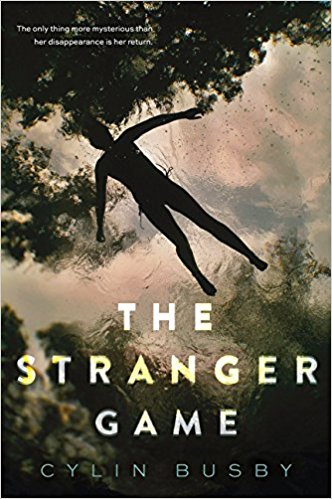 I was excited to read this book, as it sounded like a nice psychological thriller, a genre I enjoy but don’t read much of. Nico Morris’s older sister, Sarah, disappeared four years earlier when she was fifteen and Nico was eleven. And now she’s back.
I was excited to read this book, as it sounded like a nice psychological thriller, a genre I enjoy but don’t read much of. Nico Morris’s older sister, Sarah, disappeared four years earlier when she was fifteen and Nico was eleven. And now she’s back.

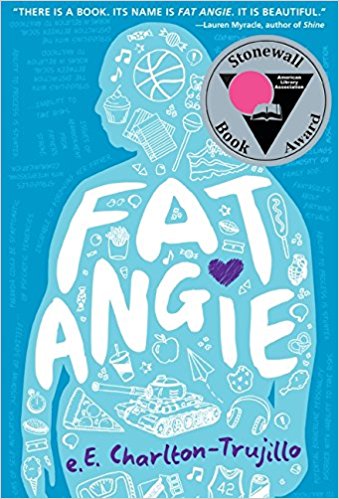 I’ll start off by saying that this is an unusual book. This is mostly because of the point of view, which I’ll go into more below.
I’ll start off by saying that this is an unusual book. This is mostly because of the point of view, which I’ll go into more below.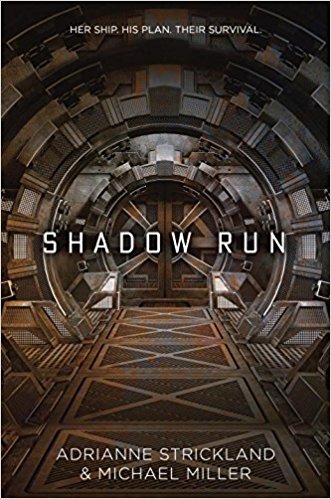
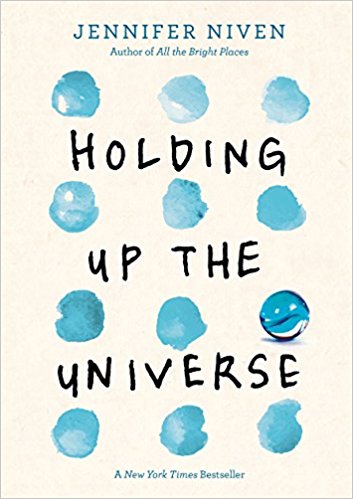 Niven’s other YA book, All the Bright Places, is probably going to remain one of my favorite YA novels of all time. So Holding Up the Universe had a lot to live up to, for me.
Niven’s other YA book, All the Bright Places, is probably going to remain one of my favorite YA novels of all time. So Holding Up the Universe had a lot to live up to, for me.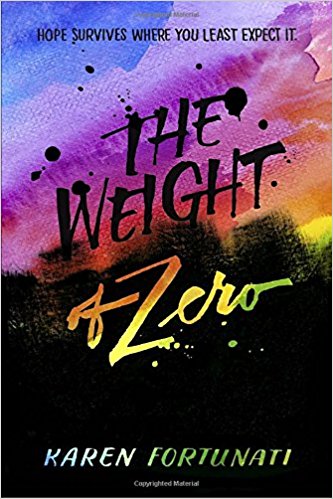 There has been a lot of books about mental illness coming out lately, which I think is great as long as the author handles it carefully. The Weight of Zero is definitely a standout in the crowd of these books for its authenticity and solid story.
There has been a lot of books about mental illness coming out lately, which I think is great as long as the author handles it carefully. The Weight of Zero is definitely a standout in the crowd of these books for its authenticity and solid story.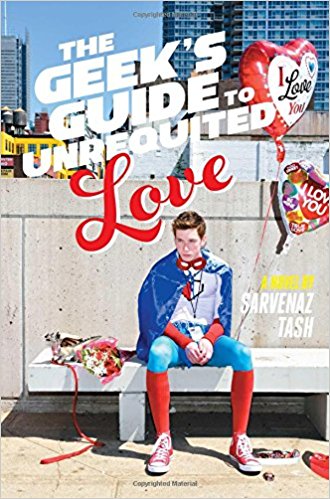 Who knew you could write a book set almost entirely at a comic con? Apparently you can because Tash managed it.
Who knew you could write a book set almost entirely at a comic con? Apparently you can because Tash managed it.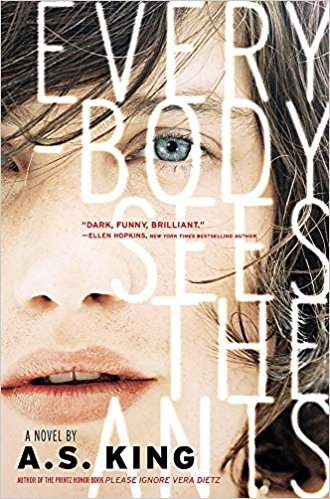 Everybody Sees the Ants is outwardly about bullying, but it’s really about many things, including masculinity, self-respect, and standing up for yourself. It’s really creative and like many of King’s books, has more than a touch of magical realism.
Everybody Sees the Ants is outwardly about bullying, but it’s really about many things, including masculinity, self-respect, and standing up for yourself. It’s really creative and like many of King’s books, has more than a touch of magical realism.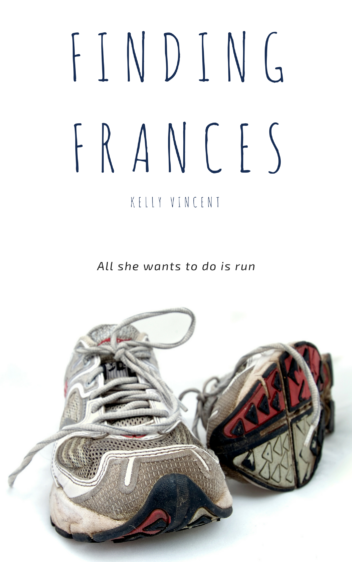
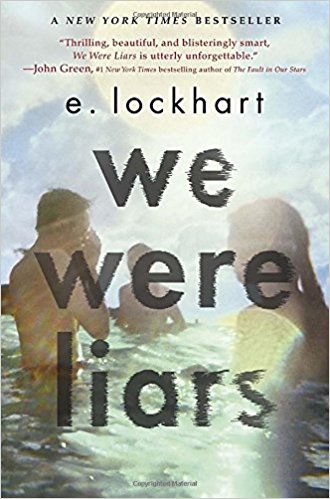 Lockhart is definitely a writer I admire, and one of the things I like most about her is the fact that she is so versatile. All her books (or series, at least) are so different from each other. That’s some skill.
Lockhart is definitely a writer I admire, and one of the things I like most about her is the fact that she is so versatile. All her books (or series, at least) are so different from each other. That’s some skill.